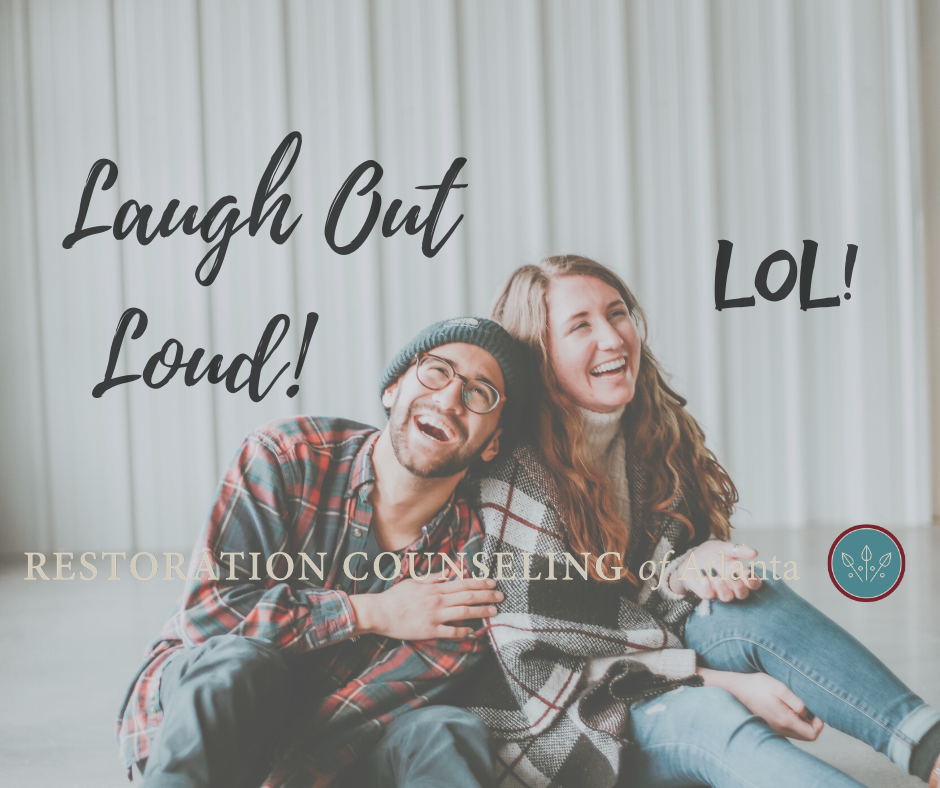“A merry heart doeth good like a medicine, but a broken spirit drieth the bones.” Proverbs 17:22
Laugh during a pandemic?
It seems paradoxical to write an article about laughter amid the challenges that accompany a global pandemic. Right now, as we battle against the spread of COVID-19, many are suffering physically, emotionally, mentally, and relationally. I don’t want to be callous to the pain that so many people are experiencing. In these times, it can be easy to forget to laugh. Nonetheless, laughter is an important part of a healthy life. Comedian, actor and filmmaker, Charlie Chaplain once said, “Laughter is the tonic, the relief, the surcease for pain.” In the pain we are experiencing during the COVID-19 pandemic and in the challenges ahead, intentional laughter can help us stay stronger, connect us to others, and lighten the heaviness of our days.
Laughter is serious science! 😊
Although many of us think of laughter as simply a response to something funny, it is a serious science! An entire field of study, called gelotology, is dedicated to studying of the science of laughter. Research shows that laughter is very good for us. It is a social experience that creates bonds and a sense of community. Laughing releases feel-good chemicals in the brain, relieves pain, and helps people to temporaril
y forget their problems. Studies show that twenty seconds of hearty laughter yields the same physiological benefits as three minute
s on a rowing machine. It increases heart rate and oxygen intake which leads to muscle relaxation and lower blood pressure. The act of laughing boosts mental processes, alertness, memory, learning, and improves the functioning of the immune system.
For more than 25 years, laughter therapy has been used to supplement cancer treatment. In his article, Laughter Prescription, Dr. William Stream, quotes cancer survivor Scott Burton, “The other reactions, anger, depression, denial, took a little piece of me with them. Each made me feel just a little less human. Yet laughter made me more open to ideas, more inviting to others, and even a little stronger inside. It proved to me that, even as my body was devastated and my spirit was challenged, I was still a vital human.” Studies in the fields of psychiatry, geriatrics, rheumatology, terminal care, and rehabilitation all demonstrate the benefits of laughter. Are you feeling down, anxious and need a quick boost? Try to laugh a bit!
If nothing is funny or you feel you lack a sense of humor -there’s hope!
Laughing however can be a challenge when times are difficult. In addition, there are some people who simply don’t feel that they have a good sense of humor. The good news is that laughter doesn’t need to be genuine in order to be effective. The body systems that benefit from laughter cannot tell the difference between laughter that is false and laughter that is genuine. That means that simply going through the motions of laughter, even a forced giggle without the presence of humor, can be physically and emotionally advantageous.
Finding funny
If you prefer to laugh at something humorous, consider what you have close-by. If you live with or near children watch them closely and laugh when they laugh. Children laugh out loud an average of 400 times per day, while adults average only 15 times per day. If you laugh only half the times they laugh, you are still ahead! If you live alone or find yourself isolated due to “social distancing,” search for laughable resources on the television or internet. Spend some time watching a humorous comedy, read a funny book, look up witty quotes or jokes, watch a quick-witted comedian and amusing videos on YouTube, or search social media for memes to share electronically with a friend.
Adding a little bit of intentional laughter will add some zest to your days, especially in these unprecedented times as we “social distance” for the good of our communities. If you would like to learn more about laughter, call a Restoration Counseling of Atlanta counselor. We care about the laughter and joy in your life.
Sources
Contreras, Gustavo (2011). Laughter for health. Healthy Living. Retrieved from: https://www.aarp.org/health.healthy-living/info-06-2011/laughter-health.htmp
Stream, William (2009). Laughter prescription. Canadian Family Physician. Retrieved from: www.ncbi.nlm.nih.gov/pmc2762283
 Written by Andrea Brandt, NCC
Written by Andrea Brandt, NCC
andrea@restorationcounselingatl.com, ext. 154
Andrea graduated this past May with a Master’s Degree in Clinical Mental Health Counseling (CMHC) from Richmont Graduate University, a Christ-centered academic environment. She is now serving clients at Restoration Counseling of Atlanta and offering reduced-cost counseling while pursuing her APC certification (Associate Professional Counselor).

